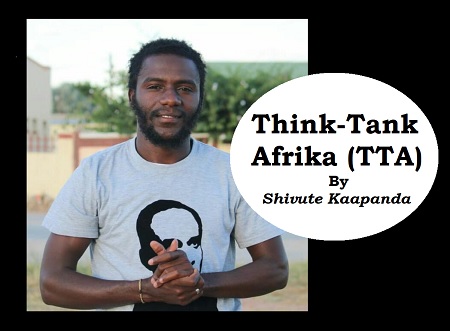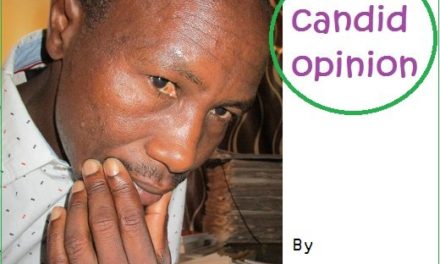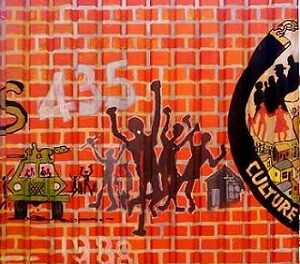The death of African anthroponymic systems
By Shivute Kaapanda [Think Tank Africa]
In contemporary Africa, cultural naming styles have systematically changed due to new civilizations from former colonial powers.
The new naming styles are either the combination of both western names and African names or purely western; this is so because due to the culture of globalization of western popular culture, the tendency that South African researcher and writer Mkhosana Mathobela Bingweni refers to as the ‘Cocacolonisation of the world’, that a coca cola drink has been turned into a global culture, the western names became a new coca cola drink.
African communities developed a tendency to value urban residence and adopt it as their new culture.
This new culture was inherited from the colonizers who once developed their exclusive residences during colonial times and gave the teachings to the natives which created an impression that urban cultural styles of living were sound and modern, like a mouse which becomes the head of all tunnels whenever the cat is away, the Tanganyika who rose to the top of these colonial residences continued to praise the old colonial culture exactly in the same way the colonizers did without realizing the damage it can cause to their culture of origin.
The naming system is not so different; as black people continue to live in these towns they adopted the colonial style of naming their kids, a modern and Christian culture of biblical names and other European names which suited urban languages as urban settlements were controlled by colonial languages as most of them became national and official languages extending to all the villages.
In these modern days one can find children who speak English in the villages rather than languages of their own.
The new naming culture is visible today when African people experience the superior hate of their own names that they were given at birth; they rather choose to be identified by either their Christian names or other English names such as Gift, Rejoice, and etcetera.
Africans are so favourably conditioned to the western culture that it became part of them so much so that they hate their own.
‘Edhinaekogidho’ is an Oshiwambo lexical expression which loosely translate as “a name serves as a link” between people.
This saying is strongly rooted in African traditional systems of name giving particularly in Oshiwambo language because names are believed not only to define personalities but also to link behavior with personalities because name-giving are sacred rituals that connect generations together – those that are to be born will be named after the current for the current were named after the ancestors so in that way the spiritual interaction between the living, the dead and those to come becomes an imaginative continual reality.
African naming systems reflects Africa’s real dreams, interactions and social imaginations but more often speaks Africa’s pure knowledge and ancestral venerations, and by that way it instills pride in realizing self-identity as far as the ancestral historical values are concerned.
Due to African anthroponymic systems in the rural African villages such as in Eyanda village in the north of Namibia lives typical species of Africans who subscribe to the social practice of African social concepts of social cohesion such as Ubuntu and genuine spirit of pan-Africanism which created strong social bonds among rural neighborhoods and create a sense of humanity in a pure context of living rather than new politically-driven humanity.
Despite the invasion of Europeans who left their signatures through apartheid Colonialism and Christianization, many rural Africans still realize the value of the naming systems and its relevance in today’s world because of the meaning and tone of lexical expressions found in African languages.
Africa is experiencing the death of original African anthroponymic system such as the use of cultural names, hereditary names, praise names and clan names that give the meaningful reflection of true African identity.
To be African today means to have both African and European cultural naming elements and confides more on foreign naming systems other than embracing the original naming systems which gives us a true meaning, identity, confidence and reflection of sense of self.
In Oshiwambo for example, the birth of a typical girl-child in the early morning results in a name “Nangula” meaning ‘morning’ which identifies and reflects the meaning at birth. Names such as “Akwenye” meaning ‘born in spring’, “Mhingana” born ‘after someone died’ are rarely practiced in urban areas of Africa.
Africa is still to find its own meaning in the new context of globalization since the concept of globalization means dissolving African culture as a whole into European culture.
It is so sad that many African people’s dream is to give birth in Europe and give their children European names but a typical Chinese can travel and live in Nigeria for 20 years, make a family there but all their children will have Chinese names, not even a mixture of Chinese and Igbo, that’s how submissive Africans are to the west.
Like in any culture, the conservation of African naming systems is the social gift of humanity and it’s a reflection of the cultural intelligence of a cultural society.
Despite globalization in the digital age which results in multiple interactions everyday, African anthroponymic systems should stand unique of their own history and should be documented by means of literature by Africans so that the next generation will feed from the cultural intelligence and onomastic of their own ancestors.
This is also part of the decolonial thinking to save Africans from the tyranny of a western naming spree that will soon get Africans to name their children after a popular “Coca Cola” drink.
– Shivute Kaapanda is a pan-African writer from Eyanda village. This is an excerpt from his seminal book “The Conscious Republic” published in 2020.







